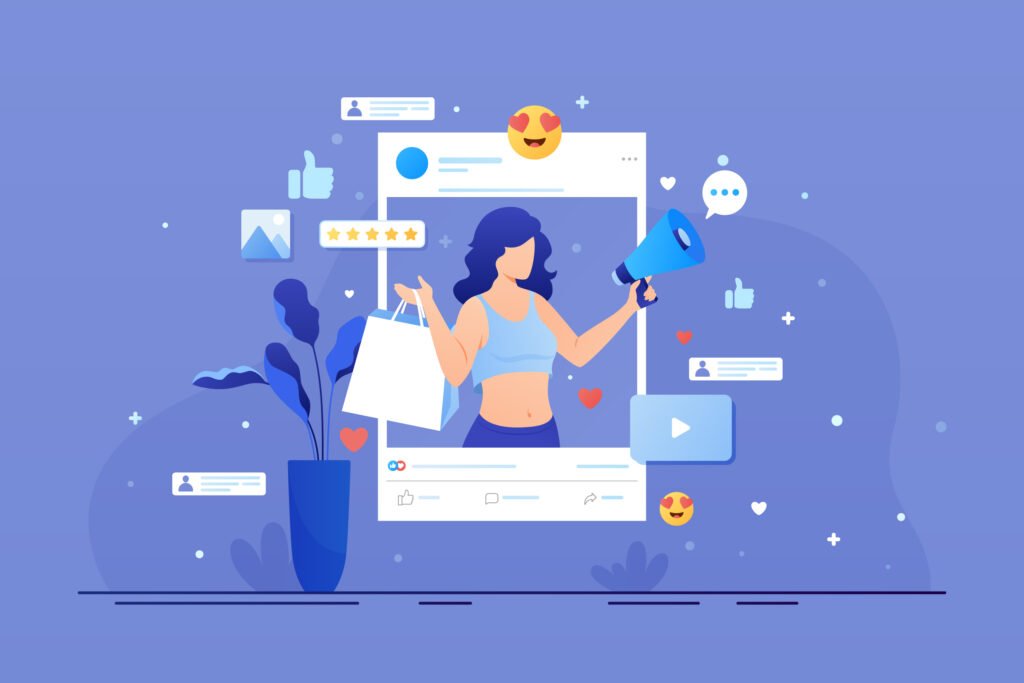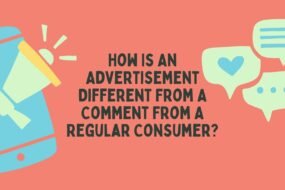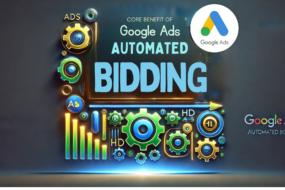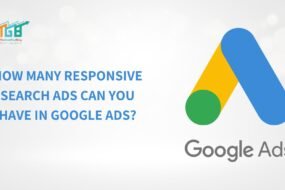
In the ever-evolving realm of marketing, one term continues to buzz with excitement and intrigue: Buzz Marketing. In a landscape of advertisements and promotions vying for consumer attention, buzz marketing emerges as a beacon of innovation and effectiveness. It’s not just about broadcasting a message; it’s about igniting conversations, sparking curiosity, and creating a ripple effect that resonates far beyond the initial interaction.
In this comprehensive guide, we delve deep into buzz marketing, exploring its intricacies, psychology, and strategies for success. Starting modestly and evolving into its present status as a cornerstone of modern marketing, we uncover the secrets behind crafting compelling campaigns that capture hearts, minds, and headlines.
So, let’s get started:
Definition Of Buzz Marketing
Buzz marketing, also known as word-of-mouth or viral Marketing, at its core, is a deliberate strategy employed to promote a product, service, or brand by creating a buzz or generating excitement among consumers. Contrary to conventional marketing approaches, which depend on paid advertisements, buzz marketing harnesses the power of interpersonal communication and social influence to spread awareness and drive engagement.
At its core, buzz marketing aims to spark conversations, capture attention, and stimulate curiosity through memorable and shareable experiences. It leverages the innate human tendency to seek out and share interesting or remarkable content with others, organically amplifying its reach and impact.
Benefits Of Buzz marketing
- Cost-Effectiveness: Buzz marketing can be highly cost-effective compared to traditional advertising methods. Instead of allocating large budgets to paid advertisements, brands can generate buzz through creative and engaging campaigns that leverage word-of-mouth and social sharing, often requiring minimal financial investment.
- Increased Brand Awareness: Buzz marketing has the potential to exponentially increase brand awareness by tapping into social networks and communities. When individuals share positive experiences or content related to a brand, it reaches a broader audience organically, leading to heightened visibility and recognition.
- Enhanced Credibility and Trust: Recommendations from friends, family, or trusted sources carry significant weight in consumer decision-making. Buzz marketing leverages this inherent trust by encouraging authentic conversations and endorsements, thereby enhancing the brand’s credibility and trustworthiness in the consumers’ eyes.
- Greater Audience Engagement: Buzz marketing campaigns are designed to be interactive, memorable, and shareable, encouraging active participation from consumers. Through user-generated content, contests, or viral challenges, brands can foster deeper engagement and emotional connections with their audience, increasing loyalty and brand affinity.
- Improved Customer Insights: By monitoring conversations and feedback generated through buzz marketing campaigns, Brands can acquire valuable insights into the preferences, behaviors, and feelings of consumers. This real-time feedback loop allows for agile decision-making and targeted adjustments to marketing strategies, ultimately leading to more effective and personalized customer experiences.
- Long-Term Relationship Building: Buzz marketing focuses on building meaningful consumer relationships rather than solely driving immediate sales. By nurturing a community of brand advocates who actively promote and endorse the brand, companies can cultivate long-term loyalty and advocacy, resulting in sustained success and growth.
Types Of Buzz Marketing Campaigns
- Influencer Marketing
- Referral Marketing
- Online Campaigns
- Event Sponsorship
Influencer Marketing

Influencer marketing taps into the influence of social media personalities to promote products to their dedicated followers authentically. Brands can expand their reach by teaming up with influencers whose audience matches their target demographic.
This collaboration takes different forms, like sponsored posts or influencer-hosted events. Leveraging the influencer’s connection with their community, brands can break into new markets and build stronger customer relationships, ultimately boosting sales.
At the heart of influencer marketing is its ability to create genuine connections between brands and consumers through trusted figures. Influencers serve as relatable ambassadors who bridge the gap between products and potential buyers.
Unlike traditional ads, influencer marketing relies on authenticity and transparency. So, brands must pick influencers whose values match their own to ensure that promotional content feels genuine and resonates with the audience.
Referral Marketing

Referral marketing harnesses the power of recommendations from satisfied customers to attract new ones. This approach encourages happy customers to refer friends or family to the brand, often in exchange for rewards. By leveraging personal connections and trust, brands can gain new customers without spending much on traditional ads. Referral campaigns typically use referral codes or links to track successful referrals and reward existing customers, fostering loyalty and advocacy while naturally expanding the brand’s reach.
The heart of referral marketing lies in tapping into people’s natural inclination to share positive experiences. By turning customers into brand ambassadors and incentivizing them to spread the word, brands can Magnify their message and extend their reach to a broader audience. Referral marketing helps acquire new customers and strengthens loyalty among existing ones, creating a win-win situation for both the brand and its customers.
Online Campaigns

Online campaigns are a versatile strategy used in buzz marketing to create excitement and engagement through digital channels like social media, email, and websites. These campaigns utilize multimedia content, interactive experiences, and targeted messaging to capture the audience’s attention and encourage participation. Whether it’s a captivating video, a fun social media challenge, or a well-planned email marketing campaign, online campaigns use the internet’s immediacy and connectivity to amplify brand messages and spark conversations online.
One of the critical advantages of online campaigns is their flexibility to tailor messaging and content to match the preferences and actions of the target audience. By understanding the online audience’s interests and actions, brands can develop content that strikes a chord with their audience, increasing engagement and interaction.
Additionally, online campaigns allow brands to monitor and evaluate their performance in real time, enabling them to make necessary adjustments to optimize their impact. By leveraging audience engagement metrics, brands can refine their tactics and messaging to enhance the effectiveness of their online campaigns.
From generating buzz around product launches to championing social causes, online campaigns provide brands with a dynamic platform to connect with consumers digitally. By fostering brand advocacy and building a loyal online community, these campaigns help brands achieve their marketing objectives and establish a meaningful presence in the digital age.
Event Sponsorship

Event sponsorship is a strategic approach in buzz marketing to increase brand visibility and engagement by partnering with various events or activities. These events span from intimate community gatherings to expansive large-scale festivals, conferences, or sports competitions.
By aligning with events that attract their target audience, brands gain access to a captive audience and opportunities for direct interaction. Event sponsorship takes different forms, including logo placement, branded merchandise, or experiential activations, allowing brands to showcase their offerings in memorable and engaging ways.
This sponsorship strategy gives brands unique opportunities to engage with consumers tangibly and memorably, creating lasting impressions beyond traditional advertising channels. By associating with well-curated events that reflect their brand values, brands can leverage the trust and goodwill of event attendees, enhancing their brand image and credibility. Moreover, event sponsorship allows brands to demonstrate their commitment to the community, support meaningful causes, and showcase their products or services in a contextually relevant environment, which fosters positive perceptions and drives brand loyalty among consumers.
Overall, event sponsorship is an effective way for brands to foster positive associations, build meaningful connections, and enhance brand awareness in a live, experiential setting. By engaging with consumers in a contextually relevant environment, brands can create memorable experiences that resonate with their audience and leave a lasting impression.
These buzz marketing tactics demonstrate brands’ diverse and innovative strategies to capture audience attention, stimulate conversation, and drive engagement in today’s dynamic marketing landscape. Whether through influencer partnerships, online campaigns, or event sponsorship, brands can forge deeper connections with consumers, amplify their message, and achieve their marketing objectives in creative and impactful ways.
Now that we’ve explored the various types of buzz marketing campaigns let’s delve into crafting a buzz marketing campaign.
How To Create A Buzz Marketing Campaign
Define Objectives and Target Audience
Start by defining your goals clearly for your buzz marketing campaign. Identify the precise objectives you intend to accomplish, whether it’s increasing brand awareness, driving website traffic, or generating leads.
Subsequently, pinpoint your target demographic and comprehend their demographics, interests, and preferences. Tailor your campaign messaging and tactics to resonate with your target audience, ensuring maximum relevance and effectiveness.
Craft Compelling Content
Create compelling and easily shareable content that matches your campaign objectives and speaks to your target audience’s interests and pain points. Whether it’s a captivating video, an attention-grabbing infographic, or an interactive quiz, prioritize creativity and authenticity to capture the audience’s attention and inspire them to take action.
Incorporate elements that evoke emotion, spark curiosity, or provoke conversation, maximizing the viral potential of your content.
Leverage Influencers and Advocates
Identify influencers, brand ambassadors, or satisfied customers who can boost your message and broaden your audience. Collaborate with influencers whose audience aligns with your target demographic and provide them with the resources and creative freedom to authentically endorse your brand or product.
Promote the creation of user-generated content and gather testimonials from contented customers to add credibility and authenticity to your campaign.
Promote Across Multiple Channels
Utilize a multi-channel approach to promote your campaign and maximize visibility. Leverage social media platforms, email marketing, influencer networks, and PR outreach to reach your target audience across various touchpoints.
Tailor your messaging and content format to suit each channel’s unique characteristics and audience preferences, ensuring consistent brand messaging and maximum exposure.
Engage and Monitor Campaign Performance
Actively engage with your audience throughout the campaign, responding to comments, addressing questions, and fostering conversations. Track the campaign’s performance metrics, including its reach, engagement, and conversion rates, to track progress toward your objectives and identify areas for optimization.
Iterate your campaign tactics based on real-time data insights, adjusting strategies to maximize impact and drive desired outcomes.
Now, let’s look at some real examples of Buzz marketing
Examples of Buzz Marketing
Wise

Wise, previously known as Transferwise, is an online money transfer service renowned for its effective marketing strategies. The company focused on building brand recognition through sign-up bonuses and controversial advertisements, alongside launching a referral program.
Over time, this program evolved to offer a free international transfer of up to $500 for referred individuals and a $75 bonus for the referrer after three friends transfer at least $300 each. Through these initiatives, Wise has cultivated a loyal base of brand ambassadors who enthusiastically promote the service to their networks.
Puma

Puma’s influencer marketing campaign is a hit, spreading buzz among its collaborators’ fan bases. Teaming up with renowned sports figures like Neymar Jr. and Olympian Molly Seidel, as well as musicians like Dua Lipa, who boasts over 73 million Instagram followers, Puma expands its reach across diverse audiences.
The brand taps into new demographics by sharing images from joint photoshoots on Puma’s and Dua Lipa’s Instagram accounts. It sparks conversations about its products, which is evident from the high engagement levels on these posts.
FAQs
Q1. What is buzz marketing, and how does it differ from traditional marketing?
A. Buzz marketing is a strategic approach to promoting products or services by creating excitement or generating consumer interest. Unlike traditional marketing, which relies heavily on paid advertising, buzz marketing leverages word-of-mouth, social influence, and viral content to amplify brand messages organically.
Q2. How can I determine if buzz marketing is right for my business?
A. Buzz marketing can benefit a wide range of businesses, particularly those looking to build brand awareness, engage with their audience on a deeper level, or launch innovative products. If your intended audience engages on social media platforms and values authentic interactions, buzz marketing could be an effective strategy for your business.
Q3. What are some key elements of a successful buzz marketing campaign?
A. A successful buzz marketing campaign typically involves creating compelling and shareable content, identifying influential individuals or communities to amplify your message, and fostering authentic interactions with your audience. Understanding your target audience’s preferences, leveraging trends, and monitoring campaign performance to optimize results is essential.
Conclusion
Now that you know in detail what buzz marketing is then, why waste your time on some other invaluable strategy, Start implementing these buzz marketing strategies and see how they can drive you better results.
If you still have any questions related to this, then please leave them in the comment section. We are delighted to address any inquiries you may have.
Thanks for reading 🙂








No Comments